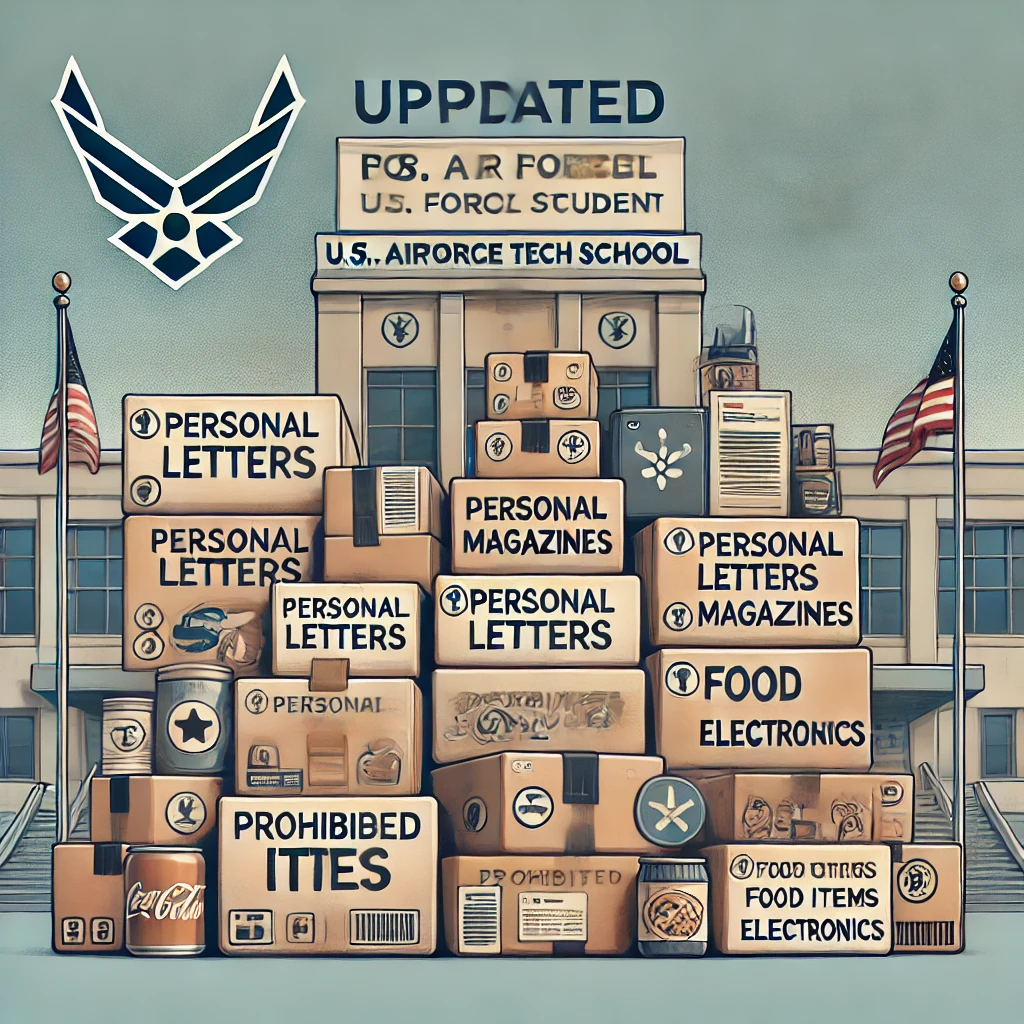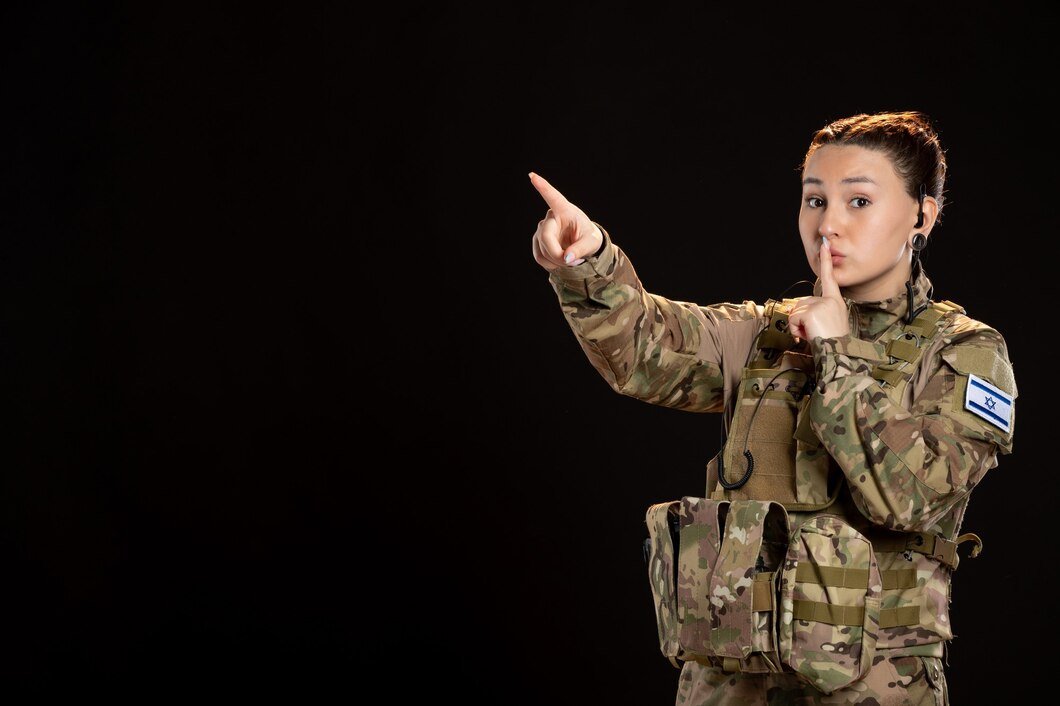Navigating Air Force Tech School Mailing Restrictions: Essential Guidelines for Cadets and Families
Introduction
Starting a journey in the U.S. Air Force involves several stages, and one of the most crucial is attending Air Force Tech School. This period of specialized training allows Airmen to develop the skills needed for their specific roles. However, adapting to military life means adhering to certain rules and regulations, including strict mailing restrictions. These limitations are essential to maintain discipline, security, and organization within training facilities. In this blog, we’ll cover the guidelines for sending packages and letters to Air Force Tech cadets, helping family and friends stay connected while supporting their loved ones effectively.
1. Understanding the Purpose of Mailing Restrictions
Mailing restrictions in the military setting, particularly in Tech Schools, serve multiple purposes:
Security and Privacy: Restricting certain items helps ensure that all packages adhere to military standards, preventing any potential security issues.
Maintaining Discipline: Limits on luxury items, electronics, and other non-essential goods help maintain a focused learning environment.
Preventing Overload: Training facilities can become overwhelmed with mail, especially during peak times, such as the start of training sessions or holidays.
2. General Guidelines for Mailing to Air Force Tech School
While each training facility may have unique guidelines, there are common principles most Air Force Tech Schools follow regarding mailing:
Size Limits: Small, compact packages are generally preferred over large parcels. Larger items are often difficult to store and can be inconvenient for both staff and cadets.
Weight Restrictions: To prevent excess storage demands, packages should be lightweight and practical.
Identification: Always include the recipient’s full name, rank, and class designation on the package to ensure it reaches the correct person.
3. Permissible Items: What You Can Send
Mailing a thoughtful package is a wonderful way to support your cadet, but understanding what is allowed is essential:
Letters and Cards: Handwritten letters are universally accepted and are highly valued by cadets. Letters allow loved ones to stay connected and provide encouragement without violating restrictions.
Photos: Non-explicit personal photographs can be sent to provide emotional support.
Magazines and Books: Some tech schools allow magazines or books if they’re relevant to learning or the military. However, avoid any publications with explicit or controversial content.
Toiletries: Basic toiletries, such as toothbrushes or deodorant, are often allowed, though it’s essential to check if these items are already provided by the school.
Stationery: Items like notebooks, pens, and envelopes are generally permissible. These can be useful for cadets who wish to send letters home.
4. Prohibited Items: What to Avoid
Understanding what items are prohibited is just as crucial to ensure your package makes it through the screening process. Some commonly banned items include:
Food and Snacks: Most tech schools do not allow food items due to health regulations and the risk of attracting pests.
Electronics: Devices like cell phones, tablets, and music players are typically not permitted to avoid distractions.
Weapons and Sharp Objects: Knives, multitools, and other potential weapons are strictly prohibited.
Luxury Items: Things like expensive watches, jewelry, and other non-essential luxury items are discouraged, as they can disrupt the disciplined environment.
Content with Explicit or Offensive Material: Books or magazines with explicit content are strictly banned to maintain professionalism.
5. Packaging Tips for Sending to Air Force Tech School
Use Plain Packaging: Avoid wrapping packages in bright colors or using ribbons, as these can attract unnecessary attention. Military mailrooms prioritize simplicity and uniformity.
Double-Check for Prohibited Items: Even items that may seem harmless, like snacks or personal electronics, should be double-checked before including them.
Clear Labeling: Proper labeling helps ensure that packages reach the intended recipient without delay. Include all relevant information, such as name, rank, and training class, on both the outside and inside of the package.
6. Alternative Ways to Show Support
If mailing restrictions prevent you from sending packages, there are alternative ways to support a cadet:
Frequent Letters and Emails: Sending regular letters or emails is a fantastic way to maintain communication. Personal notes are cherished by cadets who look forward to updates from home.
Phone Calls: While limited, tech schools allow cadets specific times to call home. Scheduling these calls helps maintain a connection.
Gift Cards: Some training bases offer commissaries or stores where cadets can purchase essential items. A gift card to a base store allows them to buy items as needed.
7. Tips for Families and Friends
Families often feel the absence of their loved ones keenly, and adjusting to restricted communication can be challenging. Here are some tips for managing this time:
Set Realistic Expectations: Air Force Tech School is demanding, and cadets may have limited time to communicate. Understanding this can help manage expectations and reduce anxiety.
Stay Informed About Policy Changes: Military policies evolve, and it’s a good idea to keep updated with the latest guidelines by checking the school’s website or contacting support services.
Use Social Media Support Groups: Many family members connect through social media groups for Air Force families, where they can share advice, support, and even clarification on mailing guidelines.
8. How Mailing Restrictions Vary Between Tech Schools

Each Air Force Tech School may have specific mailing guidelines, often based on factors like the location of the school, duration of training, and facility resources. It’s important to check with the specific school’s guidelines to avoid missteps. Some tech schools may allow certain types of books or study materials that others may not, while others may have stricter limits on package sizes.
9. The Importance of Emotional Support from Home
Receiving letters and packages can be a powerful morale booster for cadets. Training can be rigorous, both physically and mentally, and having a connection to family and friends provides essential support. Even within the restrictions, a simple note, photo, or small allowable item can make a difference.
10. Preparing Your Cadet for Mail Protocols
Helping cadets understand the mailing protocols before they leave for Tech School can streamline the process. If they know what items are allowed or prohibited, it can prevent disappointment. Additionally, they can inform family and friends of any personal preferences or items they find especially helpful.
Conclusion
Navigating the mailing restrictions at Air Force Tech Schools is an essential aspect of maintaining military discipline and security while also allowing cadets to receive support from loved ones. By understanding and adhering to these rules, families and friends can provide thoughtful, compliant packages and letters that uplift and motivate cadets without breaching military policies. Letters, photos, and small, permissible items remain the best way to show support while respecting the requirements of Tech School.
Staying connected with loved ones in training requires attention to these restrictions, but the rewards are invaluable. Whether through letters, approved packages, or alternative means of support, your encouragement will make a meaningful impact on your cadet’s journey through Air Force Tech School.














Post Comment